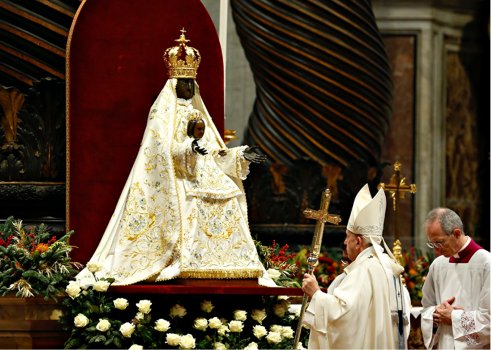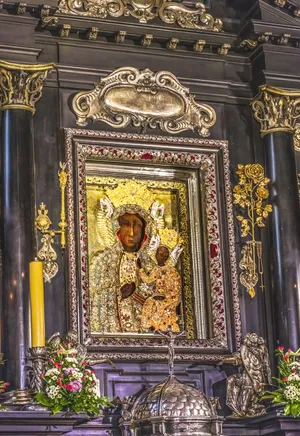Absolutely nothing in Catholic doctrine contradicts anything Paul taught. However, I'm sure there are lots of things in Catholic doctrine that contradict what you mistakenly think Paul taught, through your errant personal interpretation of Scripture. That doesn't put either the Church or Paul at odds with the truth. It puts you at odds with the truth.
What does the Bible say is the "pillar and foundation of truth?" Not the Bible. Not your personal interpretation of the Bible.
1 Tim 3:15 has the answer.
But if I should be delayed, you should know how to behave in the household of God, which is the church of the living God, the pillar and foundation of truth.
So, Paul says it is the CHURCH that is the "pillar and foundation of truth." Which Church would that be? Hmmm. Historically, there was but ONE Church when Paul wrote to Timothy. That is the Catholic Church.
CATHOLIC: Where did the word originate? It comes from the Greek word Katholikos, which was later Latinized into Catholicus.
It means 'Universal', which in itself means, 'of or relating to, or affecting the entire world and ALL peoples therein'. It means, ALL encompassing, comprehensibly broad, general, and containing ALL that is neccessary. In summation, it means ALL people in ALL places, having ALL that is necessary, and for ALL time.
It is totally biblical. It is in Matthew 28:19-20, "Go, therefore and make disciples of
ALL nations...teaching them to observe
ALL that I have commanded you; And behold, I am with you
ALL days, even unto the consummation of the world." That is a statement of Universality, Katholicos, Catholicus, Catholic.
Rom. 1:8….and you belong to that Church whose faith St. Paul describes as being "proclaimed (KATAnggeletai) in the whole universe (en HOLO to kosmo)”
Thus the Greek word KATAHOLOS or Catholic in English originated from Scriptures - Romans 1:8
Acts 9:31 "So the
church throughout all Judea and Galilee and Sama'ria had peace and was built up; and walking in the fear of the Lord and in the comfort of the Holy Spirit it was multiplied."
There the words "church throughout all" is translated from the Greek words "Ecclesia KATAHOLIS"
Thus the word KATAHOLOS or Catholic in English originated from Scriptures - Romans 1:8, Acts 9:31
But it was after Ignatius that the term Catholic Church became used more and more to designate the true church.
"Where the Bishop appears, there let the people be, just as where Jesus Christ is, there is the Catholic Church."
St. Ignatius of Antioch's letter to the Smyrneans, paragraph 8, of 106 A.D.,
Undoubtedly the word was in use before the time of this writing.
St. Ignatius was the 3rd bishop of Antioch and knew St. John the Apostle.
"And of the elect, he was one indeed, the wonderful martyr Polycarp, who in our days was an apostolic and prophetic teacher, bishop of the Catholic Church in Smyrna. For every word which came forth from his mouth was fulfilled and will be fulfilled"
Martyrdom of Polycarp 16:2 A.D. 155.
Other written records of the term "CATHOLIC" describing a character of the Christian Church:
Clement of Alexandria, Stromateis 202AD;
Cyprian, Unity of the Catholic Church 251AD;
Cyprian, Letter to Florentius, 254AD
Saint Pacian of Barcelona, Letter to Sympronian, 375 A.D.


